21 Natural Sleep Aids: What Works and What Doesn't!
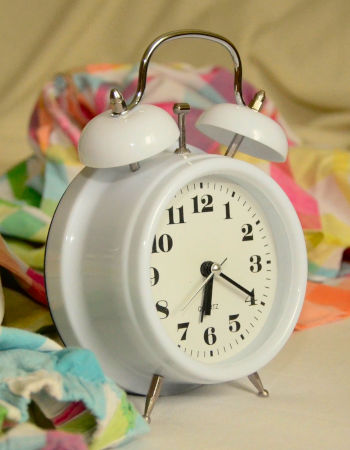
Sleep is vital for your overall health and well-being. We spend up to one-third of our lives asleep.
Roughly every third person has problems with sleep now and then.
Trouble sleeping is most common among women.
Sleep is vital to maintaining mood, memory and your cognitive functions.
Sleep restores the majority of your body systems. Therefore, sleep is one of the most essential physiological requirements for normal life such as maintaining health and mental stability.
In this article we go through 21 different natural sleep aids you can try to sleep better.
All with the research supporting them so you know what you're using and what the research tells us about their efficacy.
There's even one that, even though it's used traditionally as a sleep aid, actually is hazardous to your health. And another that should never be used if your on medication!
Table of Contents
Sleep Aids, Natural or Not, Have Side-effects and Risks
If you are contemplating using any natural sleep remedies, you need to understand what it is you’re doing. You need to know what you're putting into your body and how to discern which natural remedies that can enhance your health and which ones that could be potentially dangerous to you.
If you are having trouble sleeping, you should talk to your physician to find out if there’s any underlying cause, but also to discuss the benefits and risks of natural sleep remedies.
Like all drugs, natural sleep remedies can have side effects and risks. In the US, pre-market evaluation and approval by the FDA are not required for OTC aids, dietary supplements, or herbal products.
There Are Several Things To Try Before Using Sleep Aids
There are several methods you can try to sleep better before taking any sleep aid.
To sleep better you can try
- Implementing routines
- Reducing stress
- Reducing sedentary eating
- Reducing alcohol, caffeine-, and tobacco use
If you’re still having trouble sleeping there is a wide range of natural remedies that can help you.
Hot and Cold Beverages As Natural Sleep aid
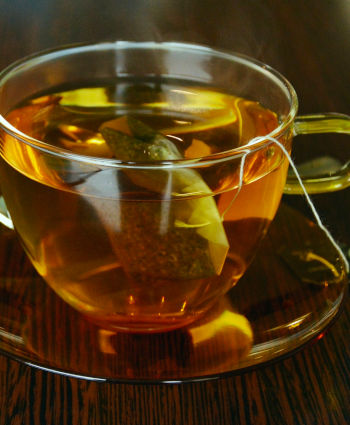
Warm milk as a sleep aid
Warm milk has long been believed to be associated with chemicals that simulate the effects of tryptophan in the brain. This is a chemical building block for the substance serotonin, which is involved in the sleep-wake transition.
If you add a spoon of honey in your milk it’ll be even better. A warm mug of milk and honey is one of the better natural sleep remedies.
The secret is in the combination of tryptophan, an amino acid known to induce sleep, and carbohydrates. Tryptophan increases the amount of serotonin, a hormone that works as a natural sedative, in the brain.
Carbs, like honey, help transmit that hormone to your brain faster.
When you drink something warm, your blood vessels that lie just below the skin expand - and as the blood flows through the vessels it has a cooling effect, which makes the heat disappear from the body more easily.
In this way, you mimic the natural fall in body temperature, which usually makes you sleepy.
The Research About Warm Milk Used As Sleep Aid
There is lacking research on how effective warm milk is. National Sleep Foundation is theorizing that perhaps the more powerful effect is the psychological link between warm milk and bedtime as a child. (source ◳)
One study, made on elderly persons, divided into two occasions, one in springtime and the second in the winter. The elderly persons were given night-time milk for 8 weeks. there were no changes in activity in the control group or in the group that consumed night-time milk during the first period.
But in the second study, the effect of season was recognizable in the scores for sleep quality. (source ◳)
Just like hot tea, a warm drink of milk can be a part of a soothing and relaxing bedtime routine.
Chamomile tea as a sleep aid
Chamomile is one of the most ancient medicinal herbs known to mankind. Chamomile tea is a popular herbal sleep remedy. Herbalists often recommend a cup of chamomile before bed. Chamomile contains the flavonoid apigenin, which has a calming effect on the brain.
Chamomile is commonly regarded as a mild tranquilizer or sleep inducer.
Many different preparations of chamomile have been developed, the most popular of which comes in the form of herbal tea. More than a million cups of chamomile tea is consumed each and every day, only in the US alone!
Studies recommend discriminate and proper use of chamomile
How safe chamomile are for young children, pregnant or nursing women, or those with liver or kidney disease has not been established, although there have not been any credible reports of toxicity caused by this common beverage.
It's believed that the discriminate and proper use of chamomile preparations could be safe and provide therapeutic benefits however an indiscriminate or improper use can be unsafe and harmful. Take the side of caution and don't overdo it! (source ◳)
Establishing whether or not the therapeutic effects of chamomile are beneficial will require further long-term research and much more scientific evidence.
Tart cherry juice as a sleep aid
A glass of cherry juice before bedtime can improve your sleep quality, according to a study in the European Journal of Nutrition. The reason for the improvement in sleep seems to be that the juice raises the levels of the sleep hormone melatonin.
The study used the acidic Montmorency cherries (tart cherries) that are common especially in the US, France, and Canada. (source ◳)
Vitamins and Minerals As Natural Sleep Aids
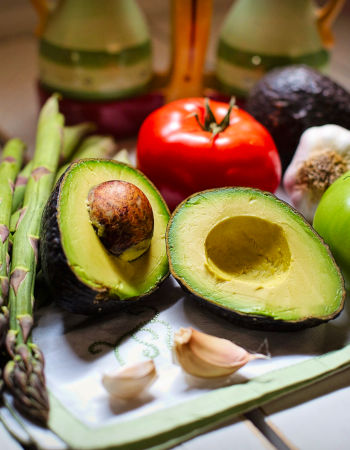
Vitamin B5, B9, and B12 as sleep aid
The water-soluble vitamin B5, pantothenic acid, is an antidote to cortisol. Cortisol is the stress hormone that is often the reason why we find it difficult to relax and feel sleepy.
Vitamin B5 also stabilizes blood sugar, counteracts inflammation and is considered to counter acne and irritation and itching of the scalp. Symptoms of B5 deficiency include anxiety, fatigue, inflammation, depression and gray hair.
Vitamin B12 is important for brain function, supporting cardiovascular health including red blood cell formation, and in supporting DNA activity.
A lack of B5 may cause you to wake up repeatedly during the night, while B12 and folic acid, which is vitamin B9, are known to help fight insomnia.
Studies made on vitamins and sleep
Although the direct link between vitamins and insomnia is unclear, some studies show an association between vitamins and other sleep disorders.
Studies have reported that B-12 shortens the length of the sleep-wake rhythm and affects the circadian aspect of sleep propensity. Studies have also identified vitamin B complex as a helpful treatment of nocturnal leg cramps. (source ◳)
Magnesium and its effect on sleep
Magnesium is an important mineral for overall health. A lot of us don't get enough magnesium in our diets: about half of adults in the US have a magnesium deficiency.
One of magnesium's most important roles is to enable healthy enzyme function. Getting sufficient magnesium helps the body maintain healthy levels of GABA, a neurotransmitter that promotes sleep, as well as elevating and stabilizing mood.
Research indicates a link between magnesium and sleep quality
Magnesium helps to regulate the body's bio clock and melatonin. Low levels of magnesium are linked to low levels of melatonin. Research indicates supplemental magnesium can improve sleep quality, especially in people who sleep poorly during a longer period.
Magnesium can also help insomnia that's linked to the sleep disorder restless-leg syndrome. (source ◳)
Plants And Flowers As Natural Sleep Aids
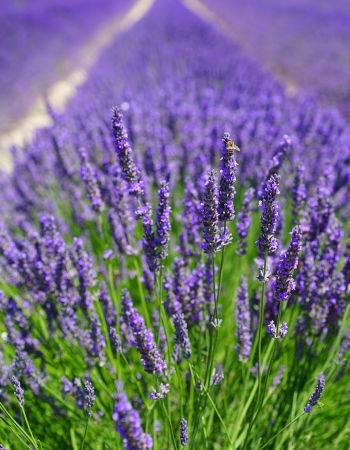
There are many sleep aids that are made from plants and flowers.
A list of natural sleep aids wouldn’t be complete without these research backed and potent all natural sleep aids.
Using jujube as a sleep aid
The jujube plant has potent natural therapeutic value, in promoting sleep and relaxation, reducing stress and anxiety and even boosting healthy digestion.
The jujube shrub-like plant has an edible fruit that is similar to date. The fruit is a nutritional and therapeutic powerhouse.
Compounds in jujube also relax the body and the mind, boosting levels of calming neurotransmitters GABA and serotonin. It also acts as a sedative.
Studies show jujube is an effective sleep aid
Studies show jujube can make it easier to fall asleep and stay asleep, but also lengthen sleep time and increase time spent in deep, restorative slow-wave sleep and REM sleep. (source ◳)
Lavender as sleep aid
Lavender is traditionally alleged to have a variety of therapeutic and curative properties, ranging from inducing relaxation to treating parasitic infections.
Studies supporting lavenders use as sleep aid
Lavender has been suggested as an excellent natural remedy to treat insomnia and improve sleep quality. Studies have been made with patients treated with lavender odor and oil.
The results of these studies support lavenders positive effects on sleep quality. (source ◳)
One study showed that six to eight drops of lavender oil added each night to the cartridge improved the night sleep significantly. Especially among females and younger participants.
Another study showed that oral lavender oil preparation (80 mg/day) can be a significant beneficial influence on quality and duration of sleep and improved general mental and physical health without causing any unwanted sedative or other drug-specific effects.
Magnolia bark as a sleep aid
The bark of the magnolia tree has long been used in traditional medicine to treat sleep issues, protect memory, reduce stress, and help with digestive problems and weight loss.
Bioactive compounds in magnolia bark appear to help increase time in both slow-wave sleep and REM sleep.
Magnolia bark is packed with potent natural compounds that have been shown to reduce inflammation and lower anxiety, as well as improve symptoms of depression. Improving these conditions can help you sleep better.
Magnolia barks content of honokiol behind its power as a sleep aid
According to the research of the bioactive compound honokiol that you find in magnolia bark, they found that the honokiol significantly shortened sleep latency to NREM sleep and increased the amount of NREM sleep.
In short, the research concluded Honokiol promoted NREM sleep by modulating the benzodiazepine site of the GABA receptor, suggesting potential applications in the treatment of insomnia,
especially for patients who experience difficulty in falling and staying asleep. (source ◳)
Ashwagandha as a sleep aid
In recent years, interest in ashwagandha has increased greatly, outside of India. This is partly because an Indian company has invested in clinically documenting the ancient Ayurvedic uses, mainly to increase knowledge of ashwagandha outside India.
The studies have also provided new knowledge about how ashwagandha works.
The studied extract named KSM-66 is a standardized full-spectrum extract that is ten times more concentrated than dried, fresh root. The extraction has been done using organic milk and water according to Ayurvedic knowledge.
Ashwagandha is one of the world's best known herbal adaptogenic herbs. Used for thousands of years in Ayurvedic medicine, mainly to cure sleep problems and burnouts.
Ashwagandha is considered to contribute to normal sleep, relaxation, and reduction of stress. The herb strengthens an exhausted nervous system, counteracting mental and physical fatigue and enhances the body's ability to recover.
One of the main uses of ashwagandha is for better sleep. The reason being its effect on GABA, the important signal substance that reduces nerve excitations, which in turn relaxes your brain.
Ashwagandha leaves and powder research
Research of Ashwagandha leaves for sleep induction shows that it might work as a sleep aid.
Ashwagandha leaf or root crude powder itself can enhance the quality of your sleep.
The results in the study demonstrated that trimethylene glycol is an active sleep-inducing component of Ashwagandha leaves and could potentially be useful for insomnia therapy. (source ◳)
Passionflower as a sleep aid
Passionflower, also known as maypop, is a natural sleep remedy and sedative that's widely used for insomnia. A few studies indicate a benzodiazepine-like calming effect of passionflower.
Traditionally passionflower is used for nervousness, anxiety and sleep problems.
Passionflower is said to contribute to normal sleep, relaxation and increased mental and physical well-being.
It’s also said that passionflower is soothing for the central nervous system and helps with problems with "weak nerves", palpitations and high blood pressure.
Sleep difficulties and anxiety are often linked to a deficiency of GABA in the brain. The soothing effect of the passionflower is said to depend precisely on its ability to increase the amount of available GABA. Also, it makes the receptors that take up GABA become more receptive.
Research shows that passionflower could provide short-term relief
According to a double-blind, placebo-controlled investigation on the effects of passionflower on the subjective sleep quality the researchers found that sleep quality showed a significantly better rating for passionflower compared with placebo.
The researchers suggest that the consumption of a low dose of Passionflower, in the form of tea, yields short-term subjective sleep benefits for healthy adults with mild fluctuations in sleep quality. (source ◳)
St. John's wort as sleep aid
St. Johns Wort is a perennial wild-growing plant with yellow flowers, native to many parts of Europe and the U.S. It’s been used for centuries for its pharmacologic properties in fighting depression, insomnia and anxiety, and for promoting weight loss.
There’s a study that suggests that there’s a therapeutic potential of St. John's wort in the management of sleep deprivation-induced anxiety-like behavior and oxidative damage. (source ◳)
Research show that you shouldn’t mix St. John’s wort with other medication
You need to be careful with St. John's wort if taking any other medication.
Research from the National Institutes of Health (NIH) reveals that St. John's wort may reduce the effectiveness of several drugs by speeding up activity in a key pathway responsible for their breakdown. The U.S. Food and Drug Administration (FDA) issued a Public Health Advisory as early as February 10, 2000, warning physicians of these potential adverse interactions and advising them to alert their patients. (source ◳)
Herbs As Natural Sleep aid
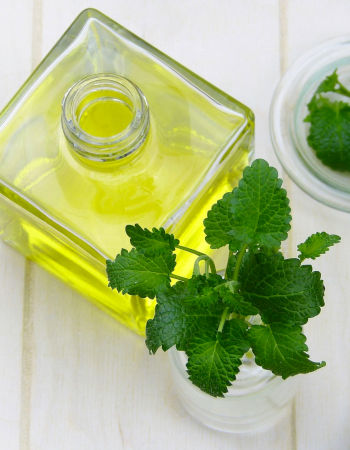
There are a few herbs that are believed to be able to help you sleep better.
Here we provide you with those that have some kind of research behind the claims of their effectiveness.
Lemon balm as sleep aid
The lemon balm, also known as Melissa Officinalis, is a citrus-scented herb used historically as a sedative and soothing agent and for sleep deprivation.
The essential oil from lemon balm has been proven to have soothing and sleep-producing properties.
In some countries, melissa tea made from the leaves of lemon balm is used as an alternative therapy to treat migraine, insomnia, and stomach ailments, as well as to strengthen the heart and improve memory.
Melissa Officinalis linked to dependency
Although Melissa officinalis is preferred by many people as an alternative to pharmaceutical drugs, it should be noted that the herb may have a dependency risk and can lead to withdrawal symptoms when consumption is abruptly discontinued. (source ◳)
Kava, traditionally used as sleep aid is harmful!
Kava, also known as kava kava, is a herbal remedy that's used for stress and anxiety relief and insomnia.
While kava has some sedative properties, it’s now considered unsafe!
You can find reports in Europe of more than 20 cases of cirrhosis, hepatitis, and liver failure that suggests the possibility of liver toxicity associated with its use.
Several countries have restricted or banned kava, but it's still legal in the US, due to its possible uses as treatment.
Both the FDA and NIH have warned about the risk of kava causing severe liver damage. (source ◳)
Research does not back the use of Kava as a sleep aid
Kava kava is believed to help induce sleep due to its anxiolytic effects. For this reason, people use it as an alternative therapy for sleep disorders. However, a review from 2015 did not find any evidence that kava can help treat sleep disorders. (source ◳)
Just don't use it!
Supplements As Natural Sleep aid
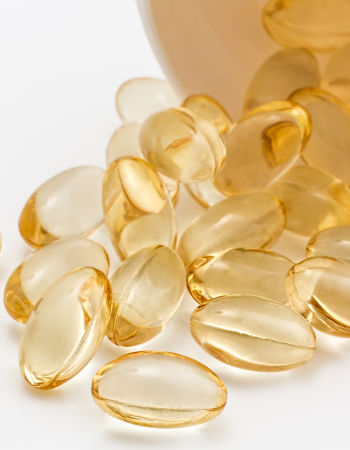
Here we list some of the supplements made from various natural sources that might give you better sleep. Supplements are believed to be far more potent than the actual herbs, plants, flowers etc that they’re made of. The reasoning is that you should get better results if you take the active component from the ingredient that nature provides and concentrate it through artificial means many times over.
Valerian supplement as sleep aid
Valerian is an herbal extract. It is one of the leading natural supplements for managing anxiety and insomnia.
Valerian is believed to help to boost the production of GABA, the calming brain chemical that promotes sleep.
Valerian appears to function primarily as an anxiolytic—an anxiety reducer.
Valerian has been shown to help people fall asleep more quickly, reduce restless sleep, increase sleep length, and improve symptoms of insomnia.
The active substance in the drug is in itself not a sleep medicine but rather a drug that relieves anxiety and stress.
So it works by making you calm when you fall asleep, which for many is a big reason for sleep problems. Valerian should be used for 2-4 weeks to achieve maximum effect.
Research made on Valerian as sleep aid
A large systematic review and meta-analysis of 16 eligible studies examining a total of 1093 patients taking valerian for sleep, showed some promising results.
The study concluded that the available evidence suggested that valerian might improve sleep quality without producing side effects.
Future studies should assess a range of doses of standardized preparations of valerian and include standard measures of sleep quality and safety. (source ◳)
Valerian should not be used by children or if you are pregnant
NIH, National Institute of health, are advising against taking Valerian by children or while pregnant.
Women who are pregnant or nursing should not take valerian without medical advice because of the possible risks to the fetus or infant have not been evaluated.
Children younger than 3 years old should not take valerian because the possible risks to children of this age have not been evaluated. (source ◳)
Melatonin as a sleep aid
Melatonin is a hormone produced in the pineal gland in the center of your brain.
Melatonin regulates the body's circadian rhythms. Those are daily rhythms such as your sleep-wake cycle.
The levels of melatonin in the blood are highest before bedtime.
Melatonin is a hormone that is naturally released in the brain four hours before we feel a sense of sleepiness. It's triggered by the body's response to reduced light exposure, which should naturally happen at night.
Exposure to unnatural light prevents melatonin release, which can make it harder to fall asleep.
Melatonin supplements are unregulated in the US
Melatonin supplements are unregulated by the FDA, the per-pill dosages and ingredients may differ from manufacturer to manufacturer. Stick with one brand, and don't buy it online from an unknown source.
Melatonin as a sleep aid grows in popularity
As a supplement, melatonin is one of the most-used sleep supplements.
The usage of melatonin is increasing rapidly. It's also younger and younger people that's starting to take melatonin.
The problem is that melatonin is unregulated and untested for long-term use in humans, or tested on younger people. (source ◳)
Long-term research of Melatonin is needed
Even though studies of long-term effects of the sleep hormone are lacking, there is speculation and an ongoing discussion as to whether it could affect gender development and reproduction.
Short-term use is quite researched, but only in older adults. As a person gets older and the pineal gland becomes calcified and produces less sleep hormone, research show that an addition of melatonin can work quite well. (source ◳)
Glycine as a sleep aid
In the US, for instance, melatonin is classified as a supplement and sold freely without regulation.
Some people find that melatonin causes grogginess and depression. Others report falling asleep quickly with melatonin, only to awaken in the middle of the night.
Still, some studies show that melatonin appears to be safe with short-term use. Short-term use meaning three months or less.
As there’s no long-term research available on the effects of supplementing melatonin for any age and we’re talking about hormones we ourselves stay away from using melatonin. There’s plenty of alternatives to try before you get to melatonin.
Study shows that glycine taken as a supplement can be an effective sleep aid
Glycine, also known as 2-Aminoacetic Acid, is an amino acid and a neurotransmitter.
Your body produces glycine on its own, synthesized from other natural biochemicals.
We also consume glycine through food. This amino acid is found in high-protein foods including
meat, fish, eggs, dairy, and legumes.
Glycine helps the body make serotonin, a hormone, as well as a neurotransmitter that has significant effects on sleep and mood.
5-HTP as a sleep aid
According to a study on the effects of glycine as a supplement, glycine can help people with insomnia. The study showed that glycine helped people both fall asleep more quickly and spend more time in REM sleep. (source ◳)
Research shows no benefit from 5-HTP supplements as a sleep aid
5-HTP, 5-hydroxytryptophan, is a derivative of the amino acid tryptophan. It’s used to boost serotonin in the body. 5-HTP is also the precursor of melatonin, which regulates sleep cycles.
5-HTP is produced as a supplement from the seeds of a plant, Griffonia simplicfolia.
Other Natural Sleep Aids
There isn't sufficient evidence to support 5-HTP use for insomnia. You can find several studies that show no benefit with supplementation of 5-HTP. (source ◳)
Water as a sleep aid? Yes!
We conclude the list of different sleep aids with the ones that many know about but still dismiss them as effective natural sleep aids. They work mainly because they are effective in promoting overall health and well-being. A healthy, relaxed body and mind sleeps well.
Physical activity can do wonders for your sleep
You can't get a good night's sleep if you wake up in the middle of the night because you're thirsty or need to go to the bathroom.
Make sure you drink enough water during the day to stay hydrated all night.
The European Food Safety Authority recommends women to drink about 2 liters of fluid per day and that men drink about 2,5 liters. Remember to spread out your water drinking over the whole day so you’re well hydrated both day and night. (source ◳)
Reduce stress from your life
Physical activity during the day can improve your sleep at night. Also, go faster to deep sleep. Researchers aren't completely sure why.
Because exercise releases endorphins, chemicals that keep you awake. This is why you normally feel so energized after a run.
The recommendation is to exercise during the day, not too close to bedtime. If you're having trouble falling asleep, try to avoid working out less than two hours before going to bed.
Keep dark, cool and quiet
Sleep problems are often associated with stress. It is important to think through and analyze where your stress might come from.
If you think your sleep problems are about stress and anxiety, it’s important to try to reduce the activities that cause stress.
It can also be helpful to do things that relaxes you.
One way is to do relaxation exercises. For instance, practicing mindfulness or meditation.
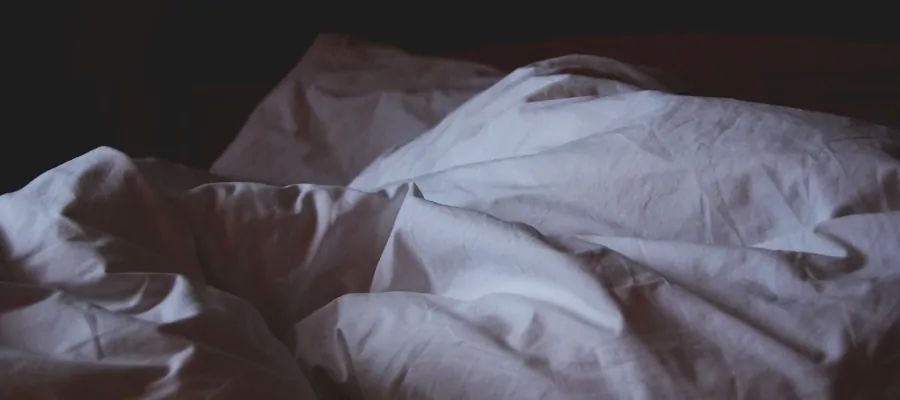
Conclusion: Sleep aids do work, but there are alternatives to try before you start using them!
For maximum comfort, the ideal temperature for your bedroom is between 60 to 67 degrees Fahrenheit or 15 to 19 degrees Celsius, according to the National Sleep Foundation. (source ◳)
For those with insomnia, a calm, relaxing sleep environment is imperative for uninterrupted slumber. Perhaps one of the most effective natural sleep remedies is removing electronics that have glowing screens, such as cell phones, tablets, and laptops.
The blue light disrupts your circadian rhythms, making it difficult to fall asleep. Even if you can fall asleep the pings from your cell phone or email can disrupt your sleep cycle, if you’re sleeping within an ear-distance from your device.
For best sleep, you should turn off your phone or at least put it in air-planemode before bedtime. Preferably 30 minutes to 1 hour before you’re planning to go to bed.
Try this before you use sleep aids!
Sleep is very important. If we are to function as we should, we all need a good night sleep every night. Once in a while everyone has trouble falling asleep or staying asleep.
Sleep problems are common. Usually, there’s nothing to worry about.
It’s not dangerous to occasionally have a night when you get too little sleep.
But if you sleep too little night after night, get tired, feel weary and it starts affecting your everyday life, you should try to figure out what to do about it.
You shouldn't go without adequate sleep for long periods of time. Sleep deprivation affects both your overall health and mental state.
If you don't already know what sleep cycles are and how to use them to your advantage to wake feeling more rested I recommend you read our article titled Sleep Cycles: What Are They & How Many Do I Need? [Tool].
There are several natural sleep aids to choose from. Teas, vitamins, herbs, plants, supplements or some other things to do that might help you but...
If you’re having trouble sleeping we would recommend that you try something else instead of taking any kind of sleep aid first.
Start by setting up a routine for your bedtime. Pick a time in the evening when your sleep routine begins and when you should be doing what.
Remember to turn off your phone or other devices before bedtime and don't bring any kind of backlit screen to bed.
Make sure your bedroom is cozy and to your liking. Invest in a comfortable bed with nice sheets and be sure to keep a low temperature in the room.
You know you got it right when just thinking about your bed and bedroom makes you a bit more relaxed and peaceful. When thinking about your bedroom makes you wish you’d be there already. Even if it’s right in the middle of the day at work!
Then you know you’ve nailed it!
What is a natural remedy for sleep?
A natural sleep remedy is something you don’t need to go to the doctor to get. It’s something you can try by yourself if you have short-term problems with your sleep. A natural remedy can be everything from what you eat to meditation or even some supplements.
Why can’t I sleep?
There could be a lot of reasons why you can’t sleep. If your insomnia is short-term, you can always try some basic but usually effective methods like a warm cup of chamomile tea or fix your bedroom, start a bedtime routine and stop bringing your phone to bed. If you’re worried or anxious you might try some mindfulness to help you relax. But if nothing works and you still have trouble sleeping, you should consult a health professional.
What can I drink to help me sleep?
There are several beverages, both backed and not by scientific evidence, that can help you before bedtime. For instance a warm glass of milk is a great way to help you relax, a lot of people say it works, but the research on it is lacking. A glass of tart cherry juice before bedtime, has been shown in studies to improve sleep quality. The cherry juice should be made of acidic Montmorency cherries.
What’s the best temperature in the bedroom for best sleep?
According to the National Sleep Foundation, for maximum sleeping comfort, the ideal temperature for your bedroom is between 60 to 67 degrees Fahrenheit or 15 to 19 degrees Celsius.



 TM
TM